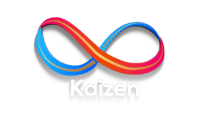Some of the frequently asked questions (FAQ) regarding ISO Standards are as below:
Frequently Asked Questions (FAQ)
The International Organisation for Standardisation (ISO) is a voluntary Organisation that develops and publishes internationally recognised Standards.
ISO consists of global members, each being an expert in the National and Regional Standards prevailing in their respective countries. These members are closely working together to combine the various country-specific Standards into a Standard that is applicable and recognised internationally.
ISO’s objective is simple: to develop and provide international standards in response to market needs. It is a non-governmental Organisation and therefore operates independently of the government.
Standards are documents that set out specifications, procedures and guidelines that aim to ensure products, services, and systems are safe, consistent, and reliable.
There are three categories of Standards:
1) International Standards: Developed by ISO, IEC and ITU for countries to adopt for national use.
2) Regional Standards: Prepared by a specific region. Such as the European Union’s EN standards, or joint Australian/New Zealand standards.
3) National Standards: Developed either by a national standards body or other accredited bodies.
ISO’s initiative is to combine these various national and regional Standards into internationally applicable Standards.
ISO Standards are designed to suit any size of Organisation from small businesses to multinational corporations.
With 21,584 international Standards already being published, ISO Standards can be implemented to companies working in all kind of industries, non-governmental Organisations and governmental Organisations alike.
There are more than 20.000 ISO Standards. Some of them are applicable to all types of organisations, regardless of the industry, size or location.
However, some Standards are specific to certain types of companies.
When deciding which Standard to get certified against, you should take various factors into account. The sector that your company belongs to, the needs or requests of your customers or suppliers, and which aspects your company is most committed to are all important considerations.
However, our recommendation is to start with ISO 9001 Quality Certificate. This ISO Standard certifies that products and services are produced most efficiently and are delivered to the highest standards possible. It is the most commonly used Standard among companies of all kind and size.
ISO certification is an external audit performed to validate that your Organisation operates according to a specific ISO Standard requirements.
Certification can be achieved for a multitude of ISO Standards such as Quality Management (9001), Health and Safety Management (45001), Environmental Management (14001) and many more.
Being certified portrays that your Organisation operates under what international experts agreed upon as best practice. Thus, certification will help strengthen your market position, reduce costs, instil customer and stakeholder trust as well as conforming with national or local regulations.
ISO Standards are voluntary. The International Standards Organisation is a non-governmental Organisation that’s primary interest is the design and implementation of Standards. However, it has no power to enforce these Standards.
ISO certification is usually optional. Most Organisations decide to receive ISO accreditation to promote their credibility by demonstrating that their products and services are consistently meeting expectations.
Some organisations get certified to demonstrate their capability to clients during the Tendering process.
The certification process consists of a third-party auditor reviewing the successful implementation of the Standard being implemented. The auditor will provide certification if the Organisation can demonstrate compliance with ISO requirements. Certification Bodies, issue certificates and audit you to verification of your systems on an annual basis. For more information visit the leading Telarc, leading Certification Body in New Zealand.
Prior to the certification Audit, the Management System needs to be designed and implemented. The time this takes varies from project to project and depends on the lead time of the certification body but usually ranges from 2- 6 months.
The Audit itself can take anywhere from hours to days, depending on the characteristics of your Organisation. Once the successful implementation has been demonstrated during the Audit, the certification will arrive in a matter of hours.
The pricing of ISO certification is highly dependent and various factors need to be taken into consideration, such as the size of the operation, the number of existing sites, quality of existing documents/records, maturity of existing systems as well as the extent of support required.
Please get in touch with us to give you a customise no-obligation quotation!
Kaizen Consulting offers practicable and achievable consultancy solutions specialised in compliance management systems, quality assurance and control, business process improvements and lean manufacturing.
We develop customised Management Systems, handbooks, processes and procedures targeted at making the most of your company’s processes and procedures and to help you to achieve the certification.
We offer:
- Expertise;
- Fixed fee’s;
- Realistic timelines;
- Working around your schedule;
- Development of efficient and practical processes;
- Adaptation of standards to suit your Organisation; and
- Support and guidance through ought the implementation and certification process.
Implementing ISO Standards yourself often turns out to be inefficient and time-consuming. Using a Consultant ensures that your Organisation is getting the most of your Management System and that Standards are implemented on budget, on time.
Kaizen Consulting has a proven track record of working with diverse industries and businesses. Contact us today to learn how our team of specialised experts can help your Organisation with the implementation of ISO.
Contact us today to discuss your receive an obligation-free consultation on your project.

